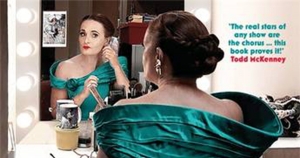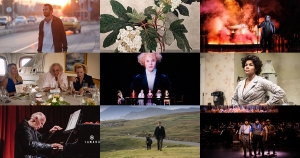Michael Halliwell
Michael Halliwell reviews ‘No Autographs, Please! A backstage pass to life in the chorus – the stars who take their bow from the second row’ by Katherine Wiles
It is a cliché of the operatic world that all members of the chorus are frustrated or failed soloists. The traditional operatic pathway frequently emerges from the chance discovery of a singing voice with potential, followed by an exploration of opportunities to develop this as yet untapped ability. This usually means enrolment in a university vocal program, sometimes followed by postgraduate degrees. In the past, this was not always the case with many instances of highly renowned singers being ‘discovered’ under the most unlikely circumstances while pursuing very different occupations, often with limited or no musical training.
... (read more)To celebrate the year’s memorable plays, films, television, music, operas, dance, and exhibitions, we invited a number of arts professionals and critics to nominate their favourites.
... (read more)Picture the scene …
A space. Empty. A fall of white ash which covers all surfaces, enveloping in a fine whiteness. A party of futuristic explorers trudge through the frozen steppes. They are in the colours of artificial, twenty-first century Antarctic wear – bright red, yellows oranges. they come across a figure, buried in the whiteness, near to death, frozen. It is a girl, dressed in nineteenth-century clothes – sepias, browns, deep greens. They warm her, wrap her in insulative blankets. She begins to stammer out her story, a fantastic tale …
... (read more)To celebrate the year’s memorable plays, films, television, music, operas, dance, and exhibitions, we invited a number of arts professionals and critics to nominate their favourites.
... (read more)'Awakening Shadow: The indefatigable Sydney Chamber Opera' by Michael Halliwell
Understandably, the focal point of musical interest in Sydney in recent months has been Bennelong Point, more specifically the newly revamped Concert Hall at the Opera House. Central here has been the Sydney Symphony Orchestra under the new leadership of Simone Young, offering a series of wide-ranging and exhilarating concerts. But there has been other music making. Sydney’s indefatigable Sydney Chamber Opera has not been idle, and Friday saw the première of Awakening Shadow, an intriguing new/old work by Australian expatriate composer, Luke Styles, It comprises a melding of original music by Styles that enfolds the five Canticles of Benjamin Britten (1913–76).
... (read more)‘Bo Skovhus and Brahms’ German Requiem: SSO serves up a Viennese feast’ by Michael Halliwell
Over the years, the demise of the solo art song recital has often been predicted, yet the format lives on, sometimes reflecting new approaches and variations on tried and tested practices, but generally remaining within the parameters of a singer and pianist in evening wear on an empty stage. It evolved from informal house concerts in Europe in the late eighteenth century, probably reaching its ‘standard’ setting in the mid to late nineteenth century in the German-speaking lands in a form known as the Liederabend (song evening) ...
... (read more)‘Voss and The Turn of the Screw: Two outstanding adaptations of literary classics’ by Michael Halliwell
In the program for the première of Voss in Adelaide in 1986, David Malouf observed:
... (read more)No libretto can reproduce the novel from which it is drawn. A novel, especially a great one, is itself: unique, irreplaceable. The best a libretto can do is reproduce the experience of the book in a new and radically different form, allowing the form itself to determine what the experience will be.
‘La Juive: Halévy’s rare and controversial opera’ by Michael Halliwell
To say that Fromental Halévy’s opera La Juive (The Jewess) is a problematic work is a gross understatement. From the time of its successful première at the Paris Opéra in 1835 – it is one of the finest examples of French Grand Opera – it has been surrounded by controversy, periods of neglect, particularly during the 1930s, and even outright banning; its subject matter has been found confronting and frequently highly polarising. Although considered blatantly anti-Semitic by some, it was the finest opera of a successful Jewish composer.
... (read more)









